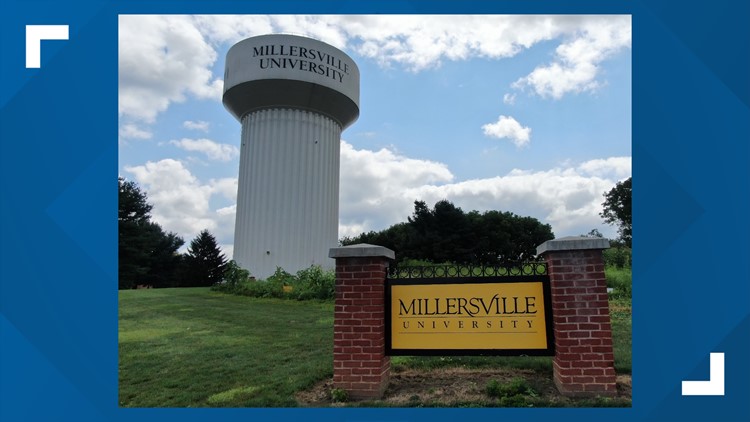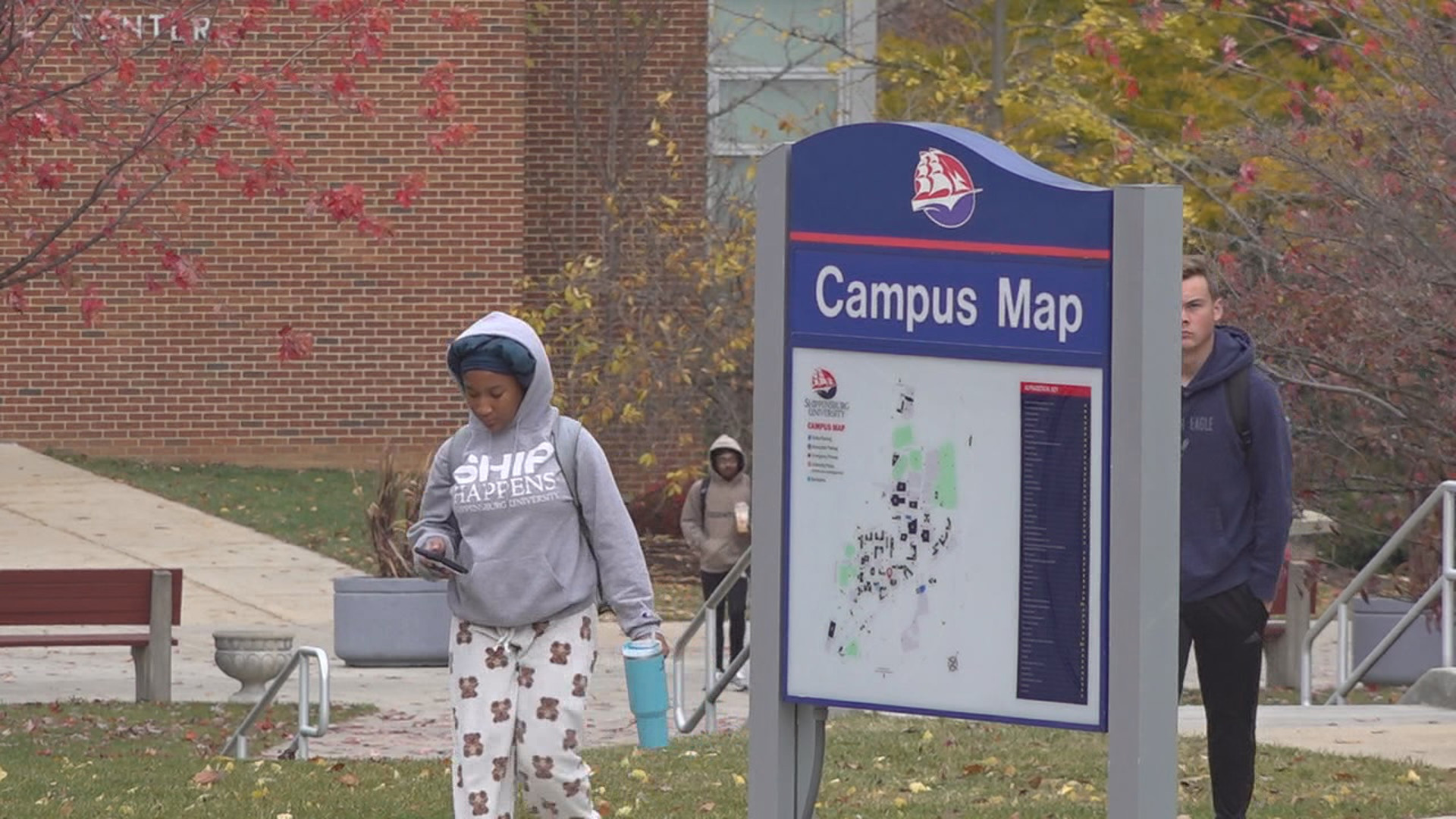HARRISBURG, Pa. — For the fifth straight year, the Pennsylvania State System of Higher Education's Board of Governors voted unanimously to freeze the price of tuition at its 13 member universities, which includes Millersville and Shippensburg in central Pennsylvania.
With the decision, tuition for in-state undergraduate students – nearly 90% of whom are Pennsylvania residents – will be flat for six consecutive years, the PASSHE said.
If tuition had kept pace with inflation since 2018, it would be 21% higher today, according to the PASSHE.
“Freezing tuition for a fifth consecutive year has been a major priority for the State System universities to best serve our 85,000 students – many of whom are from low- and middle-income families,” said Cynthia Shapira, chair of the Board of Governors. “Our students depend on PASSHE universities for a high-quality education at the lowest cost.
“The State System is incredibly appreciative to the General Assembly and Governor Shapiro for their continued strong investment in PASSHE students and the state-owned, public universities that serve them. PASSHE was created to benefit Pennsylvania, and funding from the state is a lifeline for our students to have access to higher education.”
Shippensburg University president Dr. Charles E. Patterson praised the decision.
"We are committed to providing an affordable and superior education at Shippensburg University. Our students are our top priority, and this freeze in tuition demonstrates our commitment to access and affordability for all students," Patterson said. "We are grateful for the General Assembly and Governor Josh Shapiro and their continued support of our mission."
The move was also hailed by Senate Republicans.
President Pro Tempore Kim Ward (R-39), Majority Leader Joe Pittman (R-41) and Appropriations Committee Chair Scott Martin (R-13) released the following statement:
“Supporting PASSHE to preserve access to affordable higher education options for families was one of the top priorities for Senate Republicans in this year’s budget process. We are extremely pleased we were able to work with PASSHE to continue our strong multi-year investments to ensure their institutions will have the resources they need to hold the line on tuition for the fifth straight year. This will go a long way toward ensuring Pennsylvania students receive the educational and training opportunities they need to compete in today’s economy.”
The state budget passed by the House and Senate would provide an increase of $33 million, or 6%, to PASSHE universities, the organization said. With that level of investment, in the last two years the state has increased funding by $108 million, or nearly 23%, with PASSHE receiving $585.6 million in 2023-24, up from $477.5 million in 2021-22.
“PASSHE is proud of our partnership with the state, which helps Pennsylvania’s students get the education and skills for the most in-demand jobs at the lowest cost,” said Chancellor Dan Greenstein. “Higher education is changing, and State System universities are continuing to evolve to meet the new needs of students, employers and Pennsylvania’s economy. Together with the state, we are strengthening the pipeline of talented and skilled people from the classroom to the workforce and providing value to students as they gain the knowledge to build successful careers close to home.”
In addition to keeping in-state undergraduate tuition at $7,716 for a sixth year, PASSHE students will receive $125 million in university-funded financial aid to help them afford their education. The tuition freeze and aid are possible due to increased state funding and PASSHE universities saving $300 million through a commitment to cost efficiencies.
State System universities are a major contributor to Pennsylvania’s workforce and align academic programs to the needs of local communities and employers, the PASSHE said.
In fact, the organization added, PASSHE universities have increased the number of students graduating into high-demand careers – healthcare, STEM, education and business – since 2010, despite there being fewer total students.



